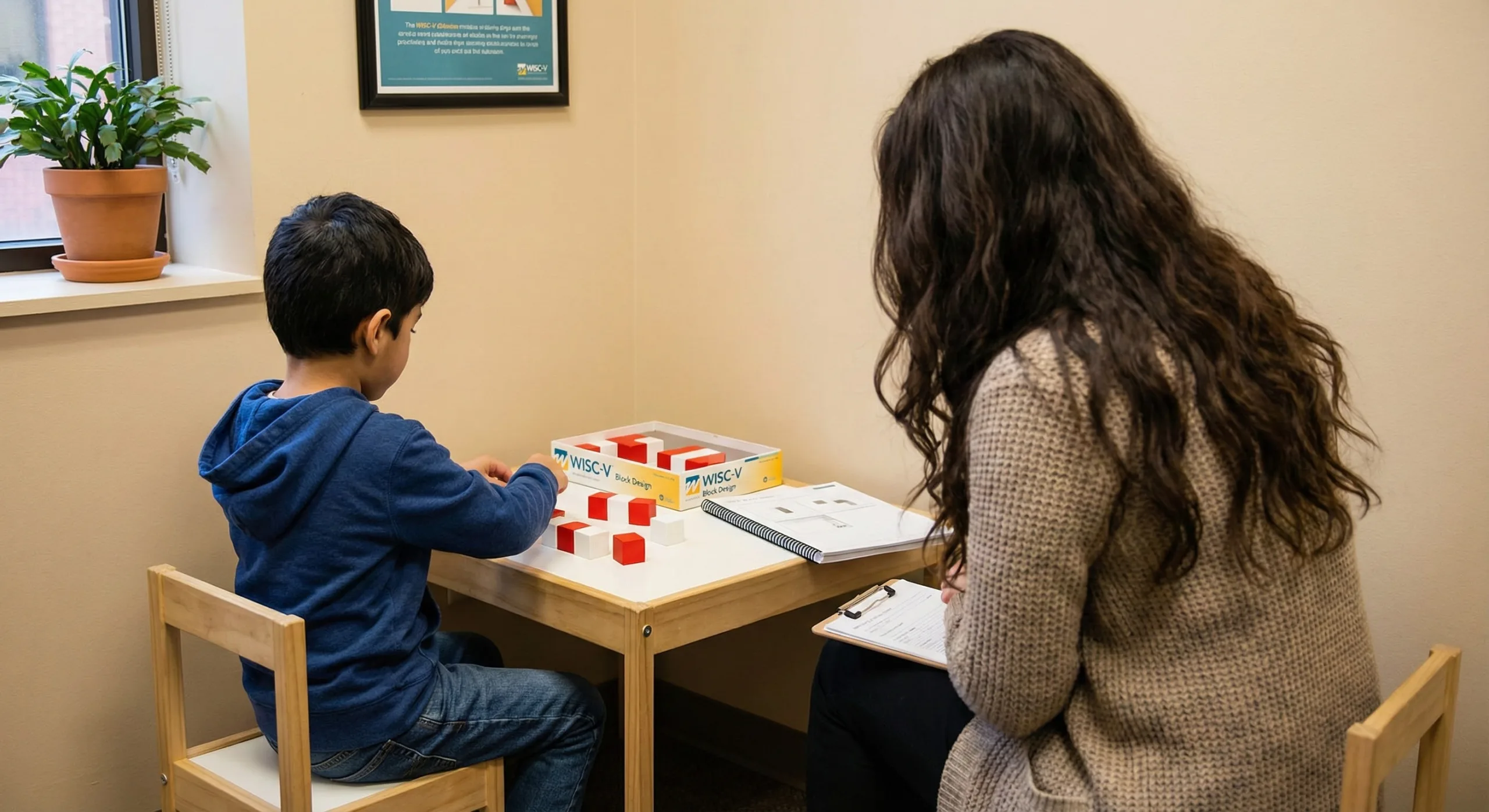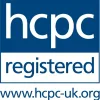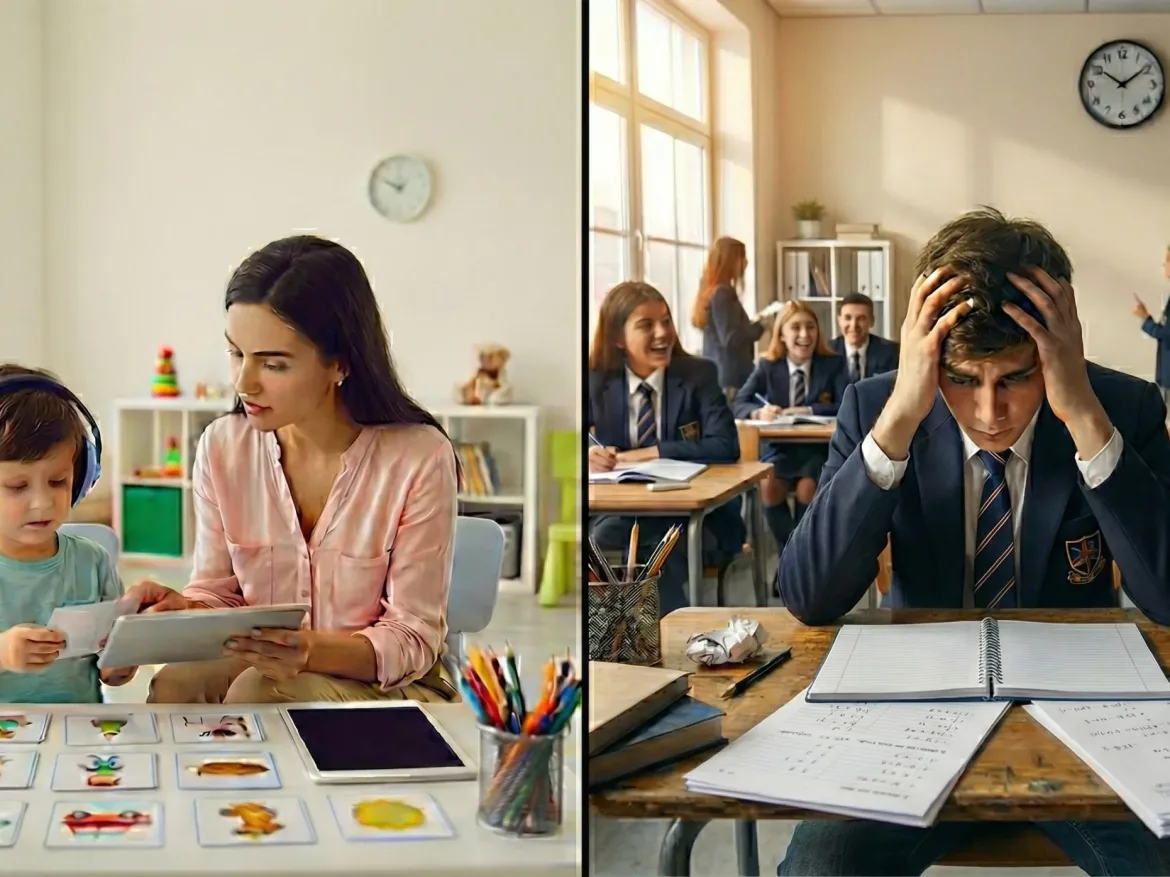Child Autism Assessments: Get Clarity and Support from UK Clinical Experts
Child Autism Assessments: Get Clarity and Support from UK Clinical Experts
NICE Guideline Compliant
Led by Dr Judy Eaton
HCPC Registered
Our Trustpilot Score
NICE Guideline Compliant
Led by
Dr Judy Eaton

20+ years experience
HCPC
Registered
Our Trustpilot Score
Meet our Clinical Director –
Dr Judy Eaton
- Consultant Clinical Psychologist (HCPC Registered)
- Over 20 years’ experience in neurodevelopmental assessments
- Published author and research fellow (King’s College London)
- Over 2,000 child assessments completed
Supported by a multidisciplinary team of 50+ specialists including:
- Clinical Psychologists
- Paediatrician
- Speech & Language Therapists
- Consultant Child and Adolescent Psychiatrists
- Consultant Clinical Psychologist (HCPC Registered)
- Over 20 years’ experience in neurodevelopmental assessments
- Published author and research fellow (King’s College London)
- Over 2,000 child assessments completed
Supported by a multidisciplinary team of 50+ specialists including:
- Clinical Psychologists
- Paediatrician
- Speech & Language Therapists
- Consultant Child and Adolescent Psychiatrists
Key benefits of choosing Help for Psychology for your child’s autism assessment

Rapid Access & Early Intervention
Your child will be seen quickly. We typically offer appointments within a maximum of three months, and often much sooner. We believe deeply in the importance of early diagnosis, support, and understanding—ensuring a “stitch in time” to help your child thrive.

NICE-Compliant, Specialist Expertise
Gain access to a comprehensive, NICE-compliant assessment led by clinicians with extensive experience in diagnostic services. We offer the flexibility to tailor the assessment to your child’s specific needs, focusing on areas such as Educational or Mental Health requirements.

Detailed Feedback & A Roadmap Forward
You won’t be left guessing. You will receive comprehensive verbal feedback and a detailed written report tailored specifically to your child. This includes clear, actionable recommendations to help you move forward with confidence.

A Holistic Approach: Beyond the Diagnosis
We look at the whole child. Our experienced team considers co-occurring conditions such as ADHD and Anxiety. If you wish to discuss mental health or medication, we can refer you to our extensive clinical team, including psychiatry, and offer a range of therapeutic interventions post-diagnosis.

Rapid Access & Early Intervention
We typically offer appointments within a maximum of three months—often much sooner. We prioritise early diagnosis to give your child the right support without the wait.

NICE-Compliant, Specialist Expertise
Access comprehensive, NICE-compliant assessments led by experienced clinicians. We tailor every assessment to meet your child’s specific educational or mental health needs.

Detailed Feedback & A Roadmap Forward
You won’t be left guessing. You will receive comprehensive verbal feedback and a detailed report with actionable recommendations tailored specifically to your child.

A Holistic Approach: Beyond the Diagnosis
We consider co-occurring conditions (like ADHD or Anxiety) and offer therapeutic interventions. We can also refer you to our clinical team for mental health or medication support.

Credible Evidence for EHCP Applications
Our reports are frequently praised for their depth and are designed to support Education, Health and Care Plan (EHCP) applications. We provide the comprehensive information and helpful suggestions required to advocate effectively for your child’s educational support.

A Stress-Free, Child-Centred Environment
We take the stress out of assessments. With a choice of two clinics and flexible appointment slots, we accommodate your travel needs and help manage your child’s anxiety. We take the time to create a welcoming, low-arousal environment where your child can feel safe.

Fully Recognised & Accepted Outcomes
Invest in a diagnosis you can trust. As a recognised provider of services to the NHS and various Local Authorities, we are confident that our reports will be fully accepted. You can rest assured that your private assessment carries weight with public bodies.

Specialised Expertise in Autistic Masking
Masking often leads to missed diagnoses because many professionals fail to ‘see behind the mask’. Our highly experienced team knows exactly what to look for. We also offer specialist resources to help you understand this complex issue.

Credible Evidence for EHCP Applications
Our in-depth reports are designed to support EHCP applications. We provide the comprehensive evidence and advice needed to advocate for your child’s education.

A Stress-Free, Child-Centred Environment
Choose from two clinics with flexible slots to suit your travel needs. Our welcoming, low-arousal environments are specifically designed to minimise your child’s anxiety.

Fully Recognised & Accepted Outcomes
As a recognised provider for the NHS and Local Authorities, you can be confident that our private assessment reports will be fully accepted by public bodies.

Specialised Expertise in Autistic Masking
Masking often leads to missed diagnoses because many professionals fail to ‘see behind the mask’. Our highly experienced team knows exactly what to look for.
However, what is clear is that waiting times for NHS assessments have increased dramatically, with many teams being completely overwhelmed. Waiting times of up to five years are not unusual.
Free Screening
Consultation
The Assessment
The Report
Gold Autism Assessment
What’s Included:
60-minute session
Comprehensive, detailed report & support plan
Gold Autism Assessment
Price
£2,475
NICE-compliant Diagnosis
Autism Spectrum Disorder (ASD)
Led By
Multi-Disciplinary Team (Led by Paediatrician / Psychologist)
What’s Included:
Developmental History
ADOS-2 Assessment
Cognitive Assessment
SRS-2 Assessment
SPM-2 Assessment
School Report
60-minute session
The Report
Comprehensive, detailed report & support plan
The BRIEF-2 is a questionnaire completed by parents of children/adolescents aged 5 to 18 years. It assesses everyday behaviours associated with executive function. It can provide helpful information that is not easily gained from an assessment situation. Parent and teacher ratings of executive functions are good predictors of a child or adolescent’s functioning in many domains, including the academic, social, behavioural, and emotional domains.
Cost (including brief report, or added to comprehensive Autism report) – £245
The PSI is designed for the early identification of parenting and family characteristics that fail to promote normal development and functioning in children, children with behavioural and emotional problems, and parents who are at risk of dysfunctional parenting.
The child characteristics are measured in six subscales: Distractibility/Hyperactivity, Adaptability, Reinforces Parent, Demandingness, Mood, and Acceptability. The parent personality and situational variables component consists of seven subscales: Competence, Isolation, Attachment, Health, Role Restriction, Depression, and Spouse. In both scales, the higher the percentile value, the more significant the level of difficulty.
Cost (including brief report, or added to comprehensive Autism report) – £245
The MACI is a self-report questionnaire that has been normed on adolescents who are experiencing emotional or social difficulties and who are in the early phases of assessment and treatment.
The first section of the interpretive report relates to those relatively enduring and pervasive character traits that are likely to underlie a young person’s difficulties. Rather than focus on specific problem areas, the report concentrates on any habitual, maladaptive methods of relating, behaving, thinking, and feeling.
Cost (including brief report, or added to comprehensive Autism report) – £295
The ABAS-3 is a questionnaire-based assessment, which provides a comprehensive, norm- referenced assessment of the adaptive skills of an individual. Adaptive skills, as measured by the ABAS-3, are defined as practical, everyday skills required to function and meet environmental demands, including the skills necessary to effectively and independently take care of oneself and the skills necessary to interact with other people.
Ten specific Adaptive Skills are measured by the ABAS-3: Communication, Community Use, Functional Academics, Home/School Living, Health and Safety, Leisure, Self Care, Self-Direction, Social Skills, and Work. Measurement of an individual’s adaptive or functional skills is an important part of a diagnostic assessment, alongside the measurement of cognitive skills, as it indicates an individual’s level of actual disability in everyday life. The ABAS-3 is compatible with DSM-5.
Cost – £245
The Conners Comprehensive Behaviour Rating Scales™ (Conners CBRS™) is designed to provide a complete overview of child and adolescent concerns and disorders. It is a multi-informant assessment of children and young people across multiple settings, with rating forms for parents, teachers, and the young person.
The key features of this screening:
- Provides information which can indicate that an ADHD diagnosis may be appropriate (however, this would need to be confirmed by a formal assessment. Additionally, a Paediatrician or Psychiatrist, would also be able to discuss the possibility of medication with you.)
- Informing intervention and treatment strategies with information on a broad range of childhood disorders and concerns
- Details of where functioning is most impacted with impairment items that indicate how the child or young person functions in academic, home, and social settings
- Provides a multi-rater perspective of the child or young person’s difficulties with a Parent, Teacher, and Self-report version
Cost (including brief report, or added to comprehensive Autism report) – £195
Norwich, Assessment
Norwich, Assessment
Norwich, Assessment
Norwich, Assessment
Norwich, Assessment
Norwich, Assessment
Norwich, Assessment
Norwich, Assessment
Norwich, Assessment
Norwich, Assessment
Very often, after an assessment, the family goes away, hopefully with a better understanding of their child, but we never hear from them again.
Occasionally, though, we do, and it is wonderful to hear how having a diagnosis has changed a child and a family’s experiences for the better.
When Billy and his family came to see Jill Dawson (one of our long-standing speech and language therapists) and Dr Judy Eaton in 2015, he was eight years old, and he and the family were struggling. His local NHS team had previously assessed Billy, and he did not receive a diagnosis because, at the time, it was felt that he did not quite fit the profile of an autistic child.
After spending time with Billy and his family, we concluded that he was autistic, which was a relief to the family, but they still had significant concerns about his future.
My broken little boy who you and Jill assessed back in 2015 has just turned 18. He’s taking four ‘A’ levels and has applied for university, passed his driving test and has a group of supportive friends. Most importantly, he is happy and has good mental health. I’m so grateful for the help you gave us as a family and the understanding that Billy was a child who was struggling, despite the masking and parent-blaming we experienced during the most difficult times. Thank you for what you do’

Very often, after an assessment, the family goes away, hopefully with a better understanding of their child, but we never hear from them again.
Occasionally, though, we do, and it is wonderful to hear how having a diagnosis has changed a child and a family’s experiences for the better.
When Billy and his family came to see Jill Dawson (one of our long-standing speech and language therapists) and Dr Judy Eaton in 2015, he was eight years old, and he and the family were struggling. His local NHS team had previously assessed Billy, and he did not receive a diagnosis because, at the time, it was felt that he did not quite fit the profile of an autistic child.
After spending time with Billy and his family, we concluded that he was autistic, which was a relief to the family, but they still had significant concerns about his future.
My broken little boy who you and Jill assessed back in 2015 has just turned 18. He’s taking four ‘A’ levels and has applied for university, passed his driving test and has a group of supportive friends. Most importantly, he is happy and has good mental health. I’m so grateful for the help you gave us as a family and the understanding that Billy was a child who was struggling, despite the masking and parent-blaming we experienced during the most difficult times. Thank you for what you do’
A stitch in time or a lifetime of scars? The urgent case for early autism assessment
Exploring the need for early child autism assessments to prevent a lifetime of scars from misdiagnosis and creating a 'stitch in time' for a child with autism.
Our Gold Standard Assessment Tools
The ADOS-2 is viewed as ‘the Gold Standard’ for the observational assessment of autism. It can be used to evaluate almost anyone who may be autistic, from very young children with no speech, to adults who are verbally fluent. (We assess children from the age of four).
- Semi-structured, standardised assessment of communication, social interaction, play, and restricted and repetitive behaviours
- Involves a variety of simple tasks, which vary according to age.
- The ADOS-2 is scored after the appointment. It is not diagnostic on its own, and is one part of a comprehensive assessment.
The WPPSI provides a baseline assessment of a younger child’s ability, and the WISC assesses verbal reasoning, non-verbal reasoning, working memory and processing speed. Most children and young people have reasonably similar abilities in the different areas of the assessment.
However, many autistic children and young people have an uneven or ‘spiky’ profile of strengths and difficulties. Some may be extremely able verbally, but struggle in many other areas. Others may have significant language difficulties but process non-verbal information much more efficiently. Results of a cognitive assessment can be shared with school as evidence to support a request for additional support.
It helps us to establish whether the child’s challenges may indicate autism, a social communication difficulty, or something else
The SRS measures social impairment in natural settings and from more than one perspective.
We ask that parents complete this, alongside someone who knows the child in a different setting (this is usually someone at the child’s nursery or school).
In addition, the SRS-2 offers two DSM-5 Compatible Subscales (the DSM-5 is the diagnostic manual we use to establish whether a child or young person meets the criteria for a diagnosis of autism):
- Social Communication and Interaction
- Restricted Interests and Repetitive Behaviour
The SPM-2 is a norm-referenced measure of function in the visual, auditory, tactile, olfactory (smell), gustatory (taste), proprioceptive (body awareness), and vestibular (balance and motion) sensory systems, as well as social participation.
We understand that neurodevelopment is complex. Our core ‘Gold Standard’ assessment will identify the primary needs. If our screening suggests a different path, we also have other specialist services and partnerships:
Pyschiatry Assessments
Launching Soon
Pyschiatry Assessments
Launching Soon
FAQs
Unlock clarity and access our Free Screening to see if your child shows signs of possible Autism.
Unlock clarity and access our Free Screening to see if your child shows signs of possible Autism.



